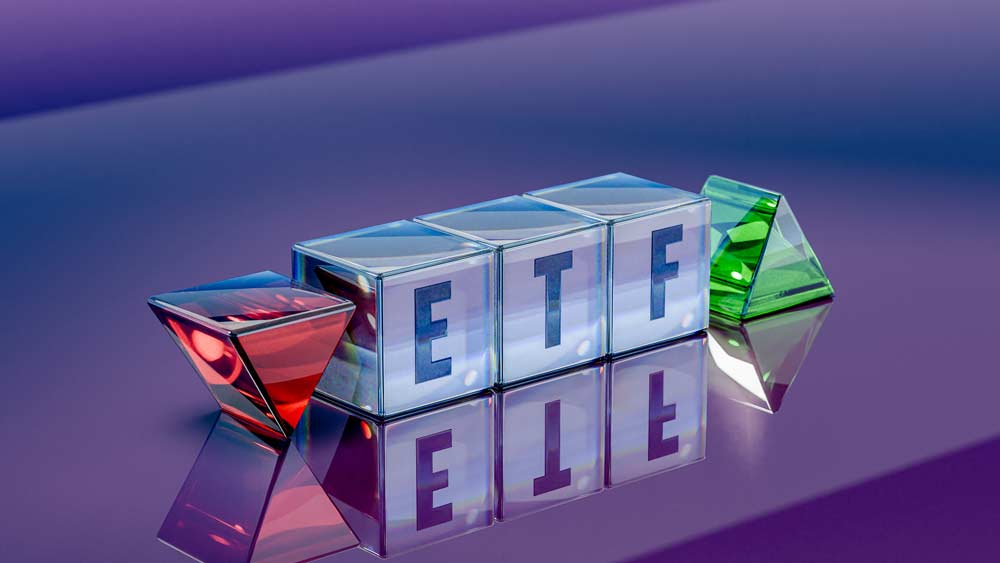
Jun 6
Using Index Funds and ETFs for Wealth Preservation
READ TIME: 3 MIN.
When it comes to preserving wealth, investing in index funds and ETFs can be a smart choice. These investment tools offer a way to grow your money while minimizing risk. An index fund is a type of mutual fund that aims to replicate the performance of a specific index, like the S&P 500. An ETF, or exchange-traded fund, also tracks an index, commodity, bonds, or a basket of assets. Unlike mutual funds, ETFs trade on stock exchanges, making them easy to buy and sell. Index funds and ETFs can sound like a foreign word for new investors! If you too have just started, Immediate Avage 360 can be a must visit resource where you can connect an investment education firm and start learning about investing.
The Importance of Diversification: Preserving Wealth with Index Funds and ETFs
Diversification is key to wealth preservation. By spreading your investments across a wide range of assets, you reduce the risk of losing a significant portion of your wealth due to the poor performance of a single asset. Index funds and ETFs offer instant diversification.
Both index funds and ETFs generally have lower fees compared to actively managed funds. This is because they simply track an index rather than requiring expensive management. Lower costs mean more of your money stays invested and grows over time. Investing in index funds and ETFs is straightforward.
You don't need to spend hours researching individual stocks or other investments. By choosing to invest in a broad market index, you are essentially betting on the overall market performance, which historically tends to rise over the long term.
Investment goal should be clear
Before investing, it's important to know what you want to achieve. Are you looking to grow your wealth, generate income, or simply preserve what you have? Your goals will determine your investment strategy. Selecting the right index funds and ETFs is crucial.
Here are a few options to consider: Broad Market Index Funds/ETFs track major indices like the S&P 500 or the total stock market. They provide broad exposure to the stock market. Bond Index Funds/ETFs track bonds, which are typically less volatile than stocks.
They can provide stability to your portfolio. Sector-specific Index Funds/ETFs focus on specific sectors like technology or healthcare. They can add targeted exposure to your portfolio.
Enhancing Diversification with Index Funds and ETFs
While index funds and ETFs are inherently diversified, you can diversify further by investing in different types of funds. For example, you could mix stock index funds with bond index funds. This way, if the stock market dips, the bonds might help balance out your portfolio. Consistency is key.
Regularly contributing to your index funds and ETFs can help grow your wealth over time. This approach, known as dollar-cost averaging, involves investing a fixed amount at regular intervals, regardless of market conditions. It can reduce the impact of market volatility.
Let's say you have $10,000 to invest. You decide to split your money between a broad market ETF and a bond index fund. You invest $5,000 in each. Over the next few years, the stock market performs well, and your ETF grows to $7,000, while the bond fund grows to $5,500.
Your portfolio is now more weighted towards stocks. To rebalance, you might sell some of the ETF and buy more of the bond fund to bring your portfolio back to your desired allocation. This process helps ensure that you're not taking on too much risk as your investments grow.
While index funds and ETFs are relatively simple, getting advice from a financial expert can still be beneficial. A professional can help you set realistic goals, choose the right investments, and develop a strategy tailored to your needs. They can also provide guidance on tax-efficient investing and other strategies to maximize your wealth preservation efforts.
Determining Your Investment Amount
Are index funds and ETFs safe? No investment is completely risk-free, but index funds and ETFs are considered lower-risk compared to individual stocks. Their diversification helps spread risk across many assets. How much should you invest in index funds and ETFs? The amount you invest depends on your financial goals, risk tolerance, and investment horizon.
It's important to invest an amount you're comfortable with and won't need to access in the short term. Can you lose money with index funds and ETFs? Yes, you can lose money, especially in the short term. However, over the long term, the stock market has historically increased in value.
Conclusion
Using index funds and ETFs for wealth preservation is a smart strategy. They offer diversification, low costs, and simplicity, making them accessible to most investors. By defining your goals, choosing the right funds, diversifying your investments, making regular contributions, and rebalancing your portfolio, you can build a solid foundation for preserving and growing your wealth. Remember, investing is a long-term game.






